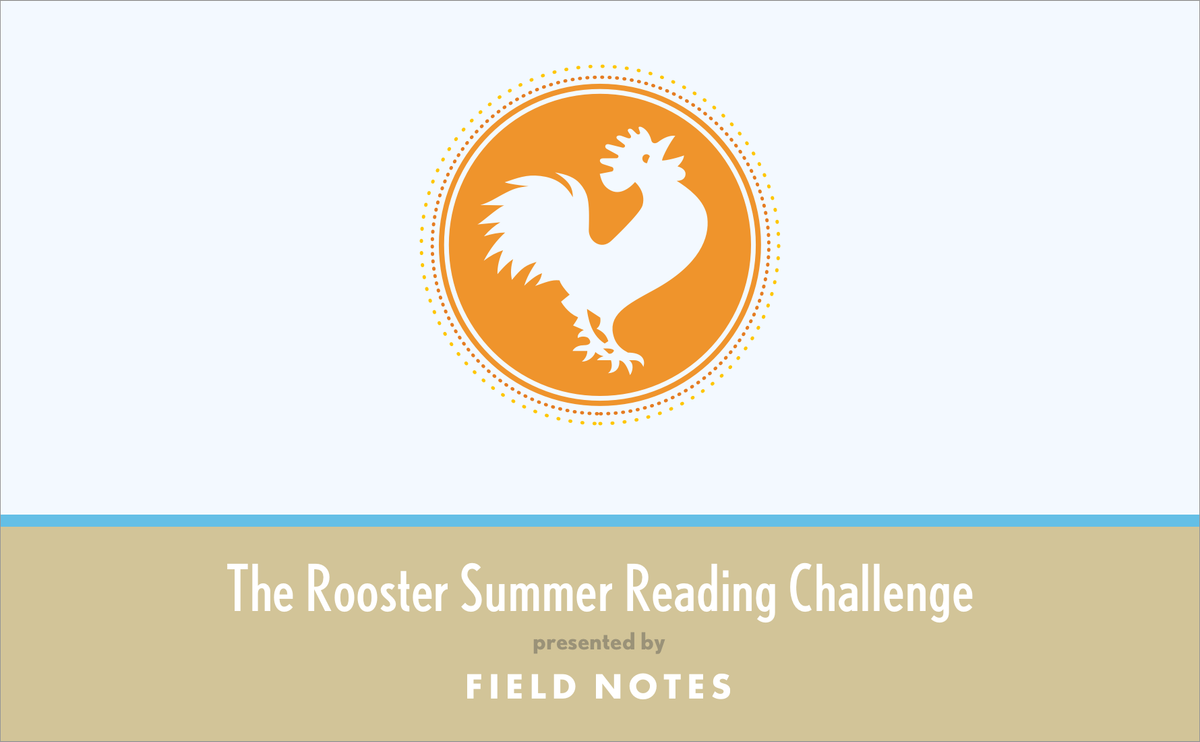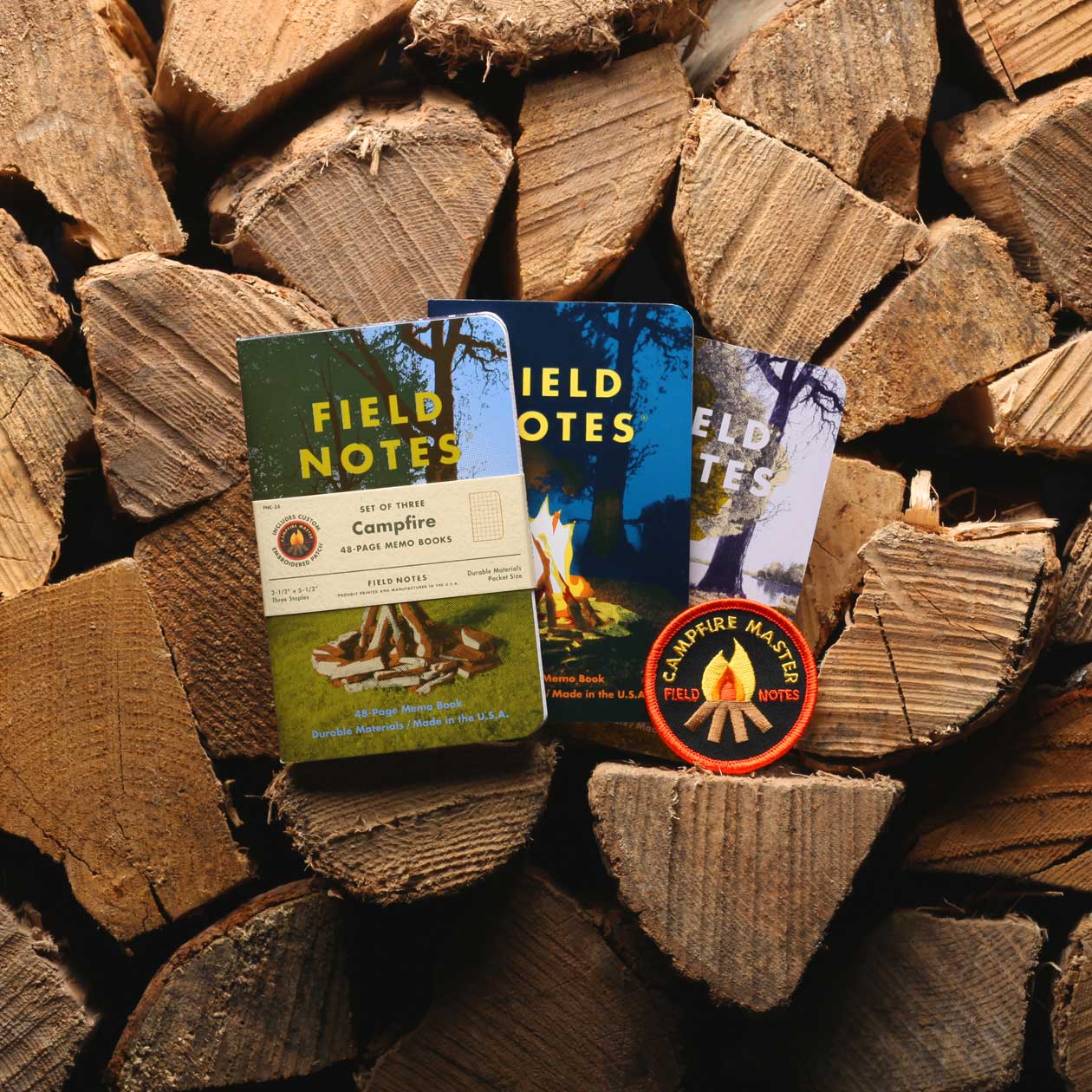The Rooster Summer Reading Challenge: Week Five
Novelist Amelia Gray joins us as we launch into our second month of the Rooster Summer Reading Challenge. With one competitor now slotted in for our end-of-summer final, we begin our July matchup: Ill Will v. Marlena.

Welcome to the Rooster Summer Reading Challenge, brought to you by The Morning News Tournament of Books and our presenting sponsor, Field Notes. All summer long, we’re reading two novels a month and reconvening on Wednesdays to discuss the books. Joining our chats is a monthly guest judge, who at month’s end decides which title heads to our summer championship on Aug. 30—when you choose which book gets an automatic berth in the 2018 Tournament of Books.
For July we’re reading Ill Will by Dan Chaon (selected by the ToB Committee) and Marlena by Julie Buntin (chosen by Rachel Khong, who will be joining us in August), with novelist Amelia Gray.
- Plan your summer reading: Ill Will (finish by July 12); Marlena (first half by July 19, finish by July 26); Temporary People (first half by Aug. 2, finish by Aug. 9; Fever Dream (first half by Aug. 16, finish by Aug. 23)
- Catch up on previous chats: A Separation first half, second half; The Night Ocean first half, second half
- Jump into this week’s discussion in the comments
Last week we wrapped up our June reading, and sent The Night Ocean onto our August summer final in August. This week we’re discussing the first half of Ill Will.
Andrew: With June now in the books, we’re onto the July edition of the Rooster Summer Reading Challenge. This month we’re joined by the novelist Amelia Gray, whose new book Isadora is one of our favorite books of the summer. I encourage everybody to check it out.
Before we get into our first chat of the month, I’d like to take a moment to thank all of you for reading along and taking part in the weekly discussions. Please let us know if you have any feedback about how this new format is working out for you.
I also want to give a heartfelt thanks to our presenting sponsor, Field Notes, and all our sustaining members, whose support makes the Rooster Summer Reading Challenge and the Tournament of Books possible. If you love the Rooster, please find out why we’re asking for your help and consider becoming a sustaining member.
Thank you again, and now over to you, Amelia and Rosecrans!
Amelia Gray is the author of five books. Her fiction and essays have appeared in the New Yorker, the New York Times, the Wall Street Journal, Tin House, and VICE. Her new novel, Isadora, was published on May 23.
Rosecrans Baldwin is the author of You Lost Me There and Paris, I Love You but You're Bringing Me Down. His nonfiction appears in a variety of magazines, most often in GQ. He co-founded TMN with publisher Andrew Womack in 1999. His latest novel, The Last Kid Left, was published on June 7.
Rosecrans: Amelia, before we dig into Ill Will, which is frequently described as a “literary thriller,” are you much of a mystery or thriller or procedural reader?
Amelia: I remember when I was a kid, the library would sell brown paper bags stuffed with trade paperback books they must have been trying to get off their shelves—Mystery Bags, they called them—and they seemed to me like the best deal in town (obviously forgetting that I was at a library at the time) and would spend the five bucks or whatever and rip through 20 terrible pulpy mystery books. There’s a quality of a certain sector of the genre that is meant to be read as quickly as possible, it’s maybe supposed to be consumed rather than considered. It’s funny, but as a result of those Mystery Bags I think I feel a little unsettled whenever I read mysteries or thrillers that also feature really great writing, fleshy characters, the wealth of ideas designed to stick around.
Rosecrans: I know the feeling, I’m genuinely surprised sometimes when somebody like John Le Carré isn’t mentioned in Nobel conversations.
Amelia: I definitely read my dad’s copy of Tinker Tailor Soldier Spy sometime as a kid and was like, “This guy is onto something.” But as I read Ill Will, I was reminded how fun writing mystery can be, just as much as reading it. I did something of this with my first novel, Threats. It’s a pleasure to spend some time occupying a genre; we’re all already tenants renting formal constraints and language, so this just feels like an extension of that. I tried to use Threats as a vessel for larger ideas; Dan is doing similar work here, and I think you do that in your new book as well. Did you find that to be true when you were writing The Last Kid Left? Did you feel elevated, light on your feet?
Rosecrans: I was a little intimidated at first, more than anything. I felt like I needed to live up to expectations, to precedents set by great mystery and crime writers. So I started calling, researching, emailing—until I reached a point where I lost sight of my story. I wasn’t writing crime or mystery fiction so much as a social novel with borrowed elements. That’s when I started to give myself permission to flout some of the genre’s “rules.”
Amelia: It’s necessary work to absolve myself of the fear or feeling that I’m violating some rule. There’s too much of that in life already, I don’t need it to creep into the environment of my work.
Rosecrans: Agreed very much.
And now to Ill Will, or, as the Washington Post would say, the "scariest book of the year." Here’s a spoiler-free intro: A psychologist, Dustin, learns that his adopted brother, Rusty, is just out of prison, having served 30 years for killing Dustin’s parents, aunt, and uncle—a sentence that relied on Dustin’s testimony for conviction. Now Dustin worries about confrontation, and there’s possibly a serial killer on the loose (inspired by the “Smiley face murder theory”), and one of Dustin’s sons is sticking heroin up his nose.
Amelia, how did the first half go for you generally? Any trouble with the shifting points of view? Did you get the creeps from page one? Did the chaos of the book's structure—being told from shifting perspectives—bother you at any point?
Amelia: I mean, it’s certainly creepy, but it’s going to have to get Chainsaw Massacre levels of scary in the second half to fit the Post’s category. There’s some eerie bits, and some scenes of violence described in memory in this lovely poetic way, scenes I’m reading a little impassively, as memory tends to inspire some feeling of helplessness in me as a reader. Pretty unsettling right as we get to the second half. I’m not easily creeped, though.
The point of view shifts smoothly and isn’t troubling to me; I didn’t find it structurally chaotic at all. One really interesting thing to me was how one character’s inability or unwillingness to process information is expressed in blank space on the page, just a few empty lines as if some invisible words are living there.
“Oh,” Dennis said finally. “You don’t want to go in there because you think he
I thought that’s interesting as a device, not overused. It feels to me like coming right up to the edge of a cliff and peering out there, trying to imagine a bridge or a drop. I’m finding it an accurate sense of how people deal with repressed memories, how we turn our minds away from them like a ship changing course. After all, as Rusty decides, emotions aren’t part of the brain but rather “part of the body … processes of your muscles and lungs and bones.” Did you find that rang true to you as a reader? Have you ever done something like that as a writer?

Field Notes Limited-Edition for Summer is Campfire. Campfire features three original photos that have been line-screened and carefully spot-printed, for a vintage feel, and each pack comes with a custom “Campfire Master” patch, ready for your scout sash or messenger bag.
Rosecrans: I’d agree with Rusty’s point, but I’m not sure the typographical gap works for me. It’s starting to show up too much, to a point where I started playing around, imagining it appear in other places, for other characters, and it still worked fine. So I admire the experimentation—same for when the story begins to get divided into columns—but I’ll wait until our next conversation to say if it was successful, in my opinion. (For a well-done use of partitions, I highly recommend J. M. Coetzee’s Diary of a Bad Year, which is basically a novel written in stripes.)
Amelia: Reading this book, my strongest impulse is to highlight and love on these passages. Satanic Ritual Abuse is described as a rock band with fans rushing the stage. A teenager has been described as having a “riptide of sullenness.” This is as much a book about growing up as it is about finding a bunch of bodies in a river, really.
Rosecrans: I’m finding I’m a lot more involved with this book when we’re talking about the kids growing up, or Dustin grappling with his wife’s cancer, or Dustin’s son’s opioid experimentation. I’m not much of a thriller reader to begin with—too often they read like half-baked screenplays—and I’m struggling with the serial killer stuff. Are you gripped at this point?
For me, everything’s finely written, the characters are crystal clear (except when they’re not meant to be) and the dialogue is great, the observations are sharp. But I want big reveals and story pivots on every page, or I want more art, more depth, more scenes that aren’t a gears for the plot’s machine. And fewer serial killers.
Amelia: So he’s violating the rules?! Didn’t we just give ourselves permission to do the same?!
Rosecrans: The Rules of Me, the Pissy, Have-It-All, Whiny-Ass Reader Who Wants Everything According to His Preferences, yes.
Amelia: I did find the midsection to be wanting a little by way of new blood. I’m thirsty for blood! But the family backstory and that drug-fueled coming-of-age kept me in it.
Rosecrans: One thing I find successful and quite well done so far is the book’s use of multiple perspectives to give us a picture of a character: seeing someone from different points of view. The device is deployed here to great effect, especially since “reliability” such is a big word in this story, whether of narrators, testimony, recounting of Satanic rituals.
Amelia: And I love a good physician-heal-thyself story.
Rosecrans: There’s definitely a lot of pharmaceutical abuse going on. Describe to me your ideal reading environment. Desk? Bed?
Amelia: I love reading over a meal, bonus points if I’m in a new city and I can look up at pleasurable intervals to see people enjoying the day.
Rosecrans: You were doing book tour stuff for Isadora while reading Ill Will. Where did it get read?
Amelia: Ill Will was read in planes and trains and in coffee shops and airports. I was doing a lot of waiting around for my own schedule. Reading a book on the road really gave the trip a kind of continuity; the book threw a shade over the trip and the trip threw a shade over the book. I didn’t shell out for an internet session on a flight yet, which really spoke to the absorption I found in this book. You headed out on book tour recently too—do you do the e-reader thing?
Rosecrans: I would, but I keep leaving them on planes (this has happened twice). Final question: Halfway through, what do you want from the rest?
Amelia: The thrilling conclusion! Hopefully we figure out who’s been putting those boys in those rivers. And what exactly is going on with the curious Dr. Tillman. Also, what happened to the murdered foursome? I’m ready for anything.

